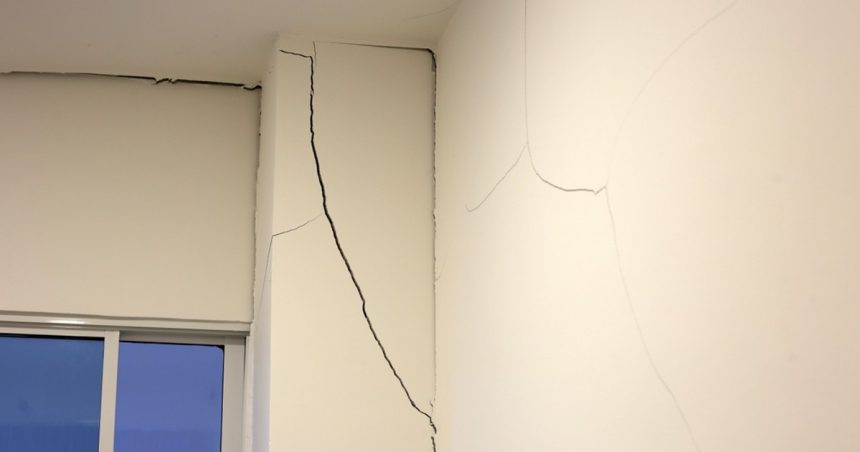With builders expected to pump out more than one million homes over the next five years, an industry expert has warned that rushed home builds could see a sharp rise in building defects.
Ambitious housing targets set by the federal government are looming large over the residential construction industry as states race to make good on their promise to build 1.2 million homes for Aussie buyers priced out of the current property market.
But with home builds off to a slow start in July and the pressure mounting on the understaffed sector to deliver, SJA Construction Services founder and court expert Steve Abbott has warned that the “forced construction boom” could be more trouble than it’s worth.
“Governments are trying to force the industry into a residential boom without the resources – both within the industry and governments – to manage such a workload,” Mr Abbott said of the new building targets.
“The construction industry needs a reliable supply of high-quality skills, staffing, a sufficient number of planners and building certifiers, a reliable talent pipeline and building materials.
“State governments need better controls in inspections and certifications – and those who carry out this important service must also be highly skilled and deeply experienced.”
If left unresolved, Mr Abbott warned that the industry could be doomed to repeat the same mistakes made during the last residential boom at the turn of the century, which saw a sharp rise in building defects in apartments and homes across the country – many of which the NSW Building Commissioner are dealing with to this day.
“Defects I commonly review as a court expert are water leaks, cracks and generally poor finishes – major symptoms of poor construction,” said Abbott.
“If we don’t prioritise quality in this next wave of residential construction, the Commissioner will have to address a new swathe of defects over the next 20 years.”
Reports by the NSW government themselves back in January seemingly back up Abbott’s claims, with a survey finding more than half of apartments registered between 2016 and 2022 reported having at least one serious defect.
“Unfortunately, there is a constant drive to do things cheaper in construction – it’s a race to the bottom,” added Abbot.
Is it too late to fix it?
It’s no secret that the construction sector has been hit hard over the last few years, with home builders in particular forced to navigate labour shortages, material cost hikes, supply chain issues and convoluted regulatory red tape.
But even in its “savaged” state, Abbott is still holding out hope that the government can right the ship if they focus on fixing what he thinks is the real problem at the heart of the issue – building quality homes.
“We need to get better at constructing quality dwellings rather than finding better ways of dealing with defects after they occur,” he said
While he welcomed the recent introduction of compulsory insurance to address defects, Mr Abbott said the “horse had bolted” and the “coverage of insurance equates to another fix”.
“It highlights a conversation about construction quality we need to have,” he continued.
“However, you can only ensure high quality when you have the right complement of appropriate resourcing across the industry. That’s where Australia is sadly lacking.
“At the heart of the construction industry are its people – their skills, experience, continuous ongoing training and their commitment. Over the years, we have short-circuited the training of apprentices.
“The reintroduction of university fees in 1989 heralded a shift back towards a user-pays system that’s now part and parcel of the vocational education and training sector, too.”
With the nation boasting “no shortage” of Aussies keen to be a part of the construction sector, Abbott urged the Federal and state governments to pave the way for better resourcing, better inspection controls and high-quality, accessible training to get the industry back on track.
“We need to get back to basics and do things right – the foundation on which the industry was built,” he said.
“Short-term solutions such as boosting skilled migration or once-off limited financial incentives to hire apprentices such as what we saw coming out of the pandemic are part of the picture, but we need something more overarching and enduring.”







